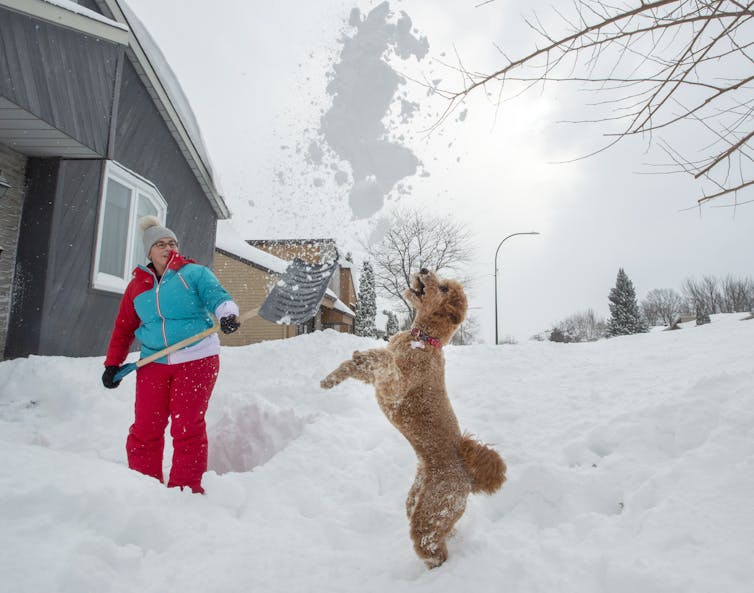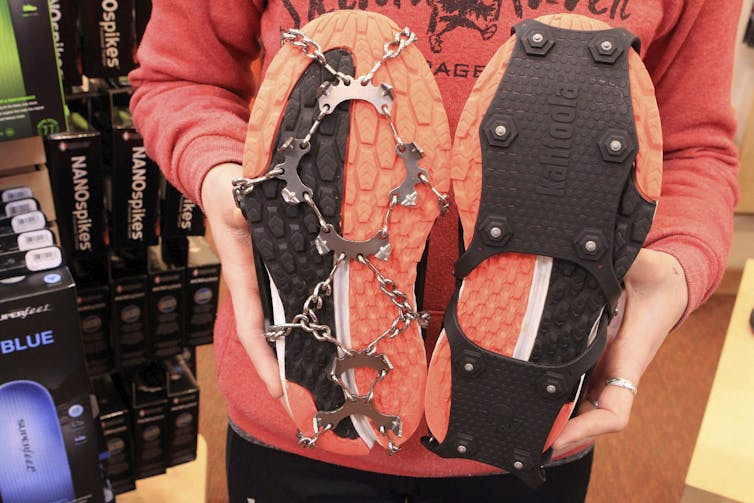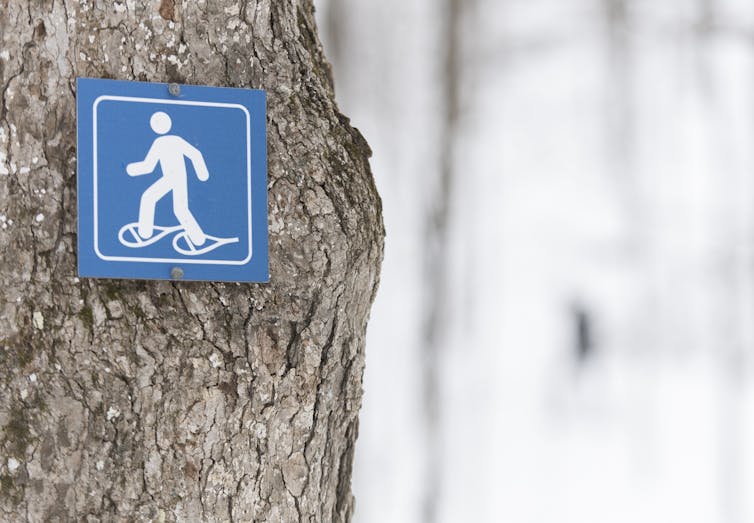If you made a New Year’s resolution about physical activity, you are not alone. Many Canadians make resolutions, and most focus on moving more. Despite best intentions, it can be difficult for people to maintain New Year’s goals; in fact, nearly half fail to achieve their resolution. There are many reasons for this, and one is that physical activity goals are hard to achieve, regardless of the time of year.
As researchers in the fields of behavioural medicine, physical activity and outdoor recreation, we have some ideas about how to make those resolutions stick.
Try to change up your physical activity and make it fun and enjoyable. Research shows that adherence to physical activity is improved when you mix things up and choose an activity that fills your cup.
One way to increase variety and enjoyment might be choosing outdoor physical activities. And it seems Canadians (with and without chronic conditions) desire outdoor activity, especially since the COVID-19 pandemic.
Outdoor benefits
Taking your physical activity outside comes with some added benefits. We have found that a single trail walk can reduce participants’ reported levels of anxiety, and that after eight weeks of trail walking two times per week, stress is decreased. We also know that people who engage in physical activity outdoors stick to it better and longer, and may work harder than when exercising indoors.

This may be explained in part by the shift in focus outwards, to the environment, rather than on inner bodily sensations, making the exercise feel easier.
In a recent study currently under peer review, we (Thomson and Lesser) found that individuals with both low and high functional capacity (a measure of aerobic fitness) were able to complete hikes of varied difficulty. Those who were less fit simply slowed down to be able to complete the same hike at the same level of effort as their fit counterparts.
This suggests that outdoor physical activity, such as hiking, is feasible from a fitness perspective and is perceived as easier.
The great outdoors in winter
If you live in a four-season climate, you may be wondering how to take physical activity outside during a Canadian winter.
First and foremost, if you are just getting started, determine your readiness to move more. You can try an online assessment like the Get Active Questionnaire to see if you need to talk to your doctor first.
Next, try some of these tips and considerations:
1. Find a support system
Research has shown that social support can promote sustained physical activity behaviour, and may take on even greater importance when activity moves outdoors.
2. Dress in layers
Overdressing is always better than underdressing, and wool is your best bet to reduce moisture and keep in heat. Make sure you are covered from head to toe — that means wearing a scarf to help warm the incoming air when the temperatures plummet.
3. Have a plan B
Unfortunately, depending on where you live, it might be too cold or icy to be outdoors. In this case, take a break and move it inside for a bit. That way, you can continue your active lifestyle and build up some excitement about getting back outside when the weather improves.
4. Safety First

When it gets slippery outside, ensure that you have proper footwear. We love snow cleats that can be put over your shoes to enhance your grip. You can also consider using walking poles to improve your balance and reduce the risk of falls.
5. Hydrate
Even though you might not feel as warm and sweaty as you would in warmer months, you are still losing water and you need to stay hydrated.
6. Make it part of your day
Find different ways to incorporate the outdoors into your daily activities! Did you know that shovelling snow counts as intense physical activity? Be the neighbourly snow shoveller — just ensure that you are warmed up and don’t go too hard. If you love biking to work, try fat tires on your bike. They increase your traction on snow and ice.
If these sound a bit too strenuous, you can always park farther away at work, school or the grocery store to add some steps to your day, or consider taking a brief walk outside on your lunch break.
7. Light it up
With the days ending so early, it can be a challenge to fit in physical activity before the sun sets. A head lamp will allow you to be out early or past dark. Just ensure that you are in a safe location (and maybe bring someone from your support system along).
8. Try something new

This is a perfect time to break out of your routine. Ever tried snowshoeing, winter hiking or cross-country skiing? Now could be the time. Don’t have equipment? Consider borrowing from a friend, renting from your local recreation facility or purchasing used equipment from a sports trader.
9. Enjoy the tranquillity
Outdoor experiences in winter tend to be quieter and include more expansive terrain with different sounds, wildlife and colour experiences. Try taking advantage of it and notice how you feel.
We hope you will try taking it outside to reap the benefits of our beautiful Canadian winters. Who knows, maybe you will even increase the likelihood of sticking to those hard-to-meet New Year’s resolutions in the process!
Iris Lesser, Assistant professor in kinesiology, University of The Fraser Valley; Amanda Wurz, Assistant Professor, School of Kinesiology, University of The Fraser Valley, and Cynthia Thomson, Assistant Professor in Kinesiology, University of The Fraser Valley
This article is republished from The Conversation under a Creative Commons license. Read the original article.

